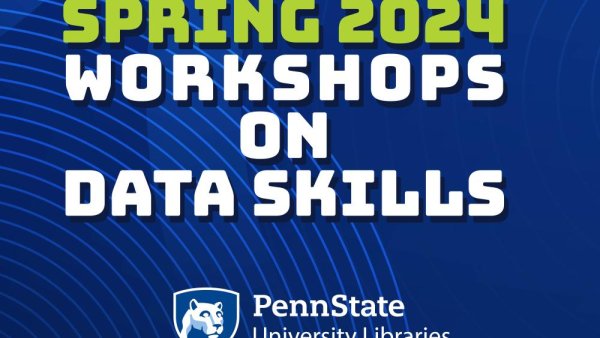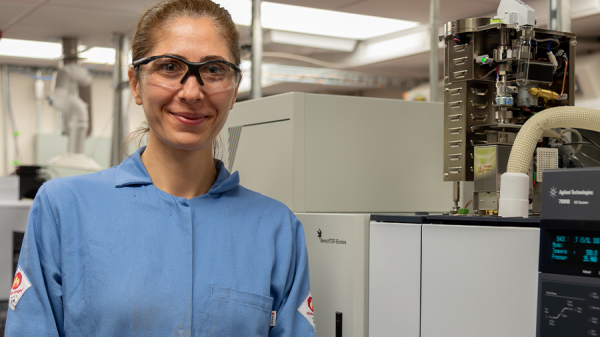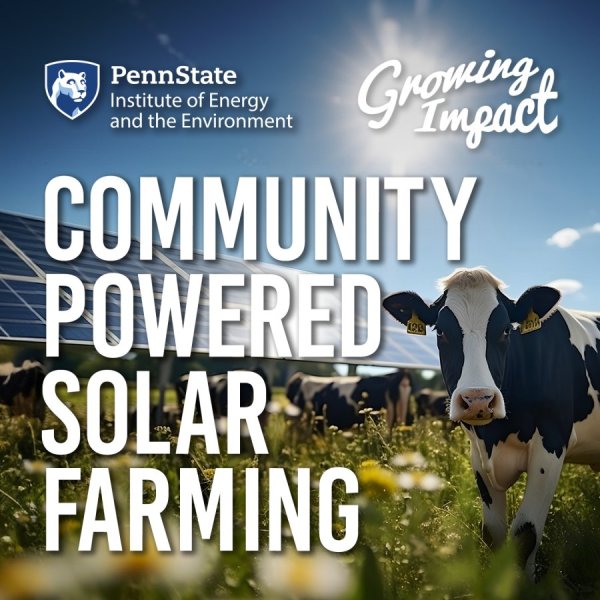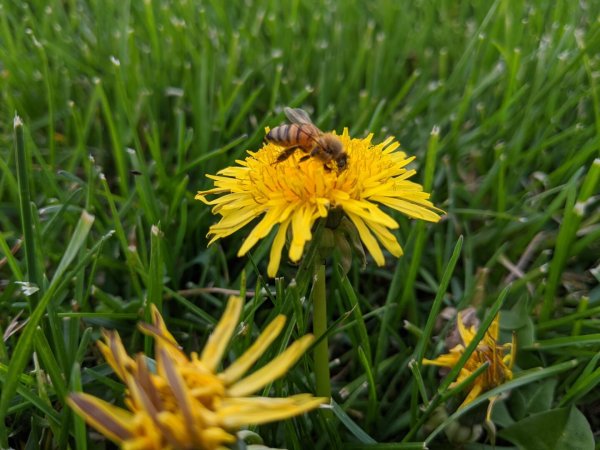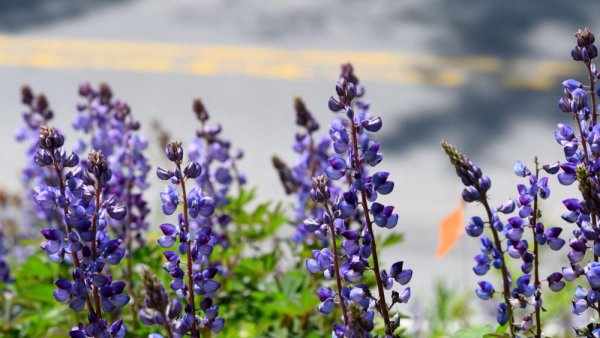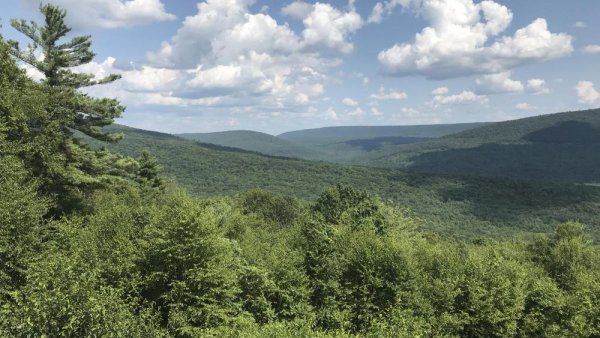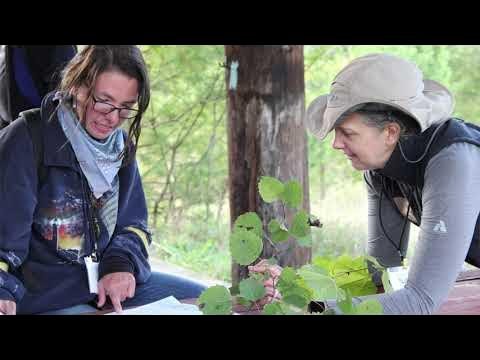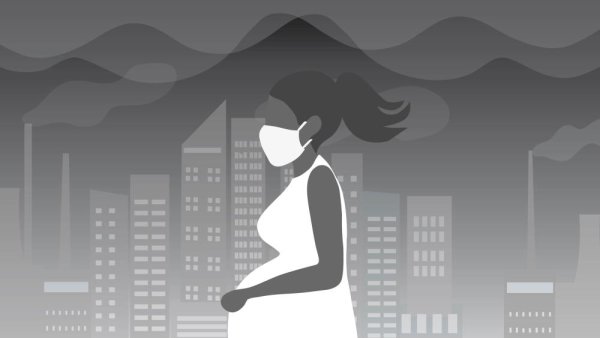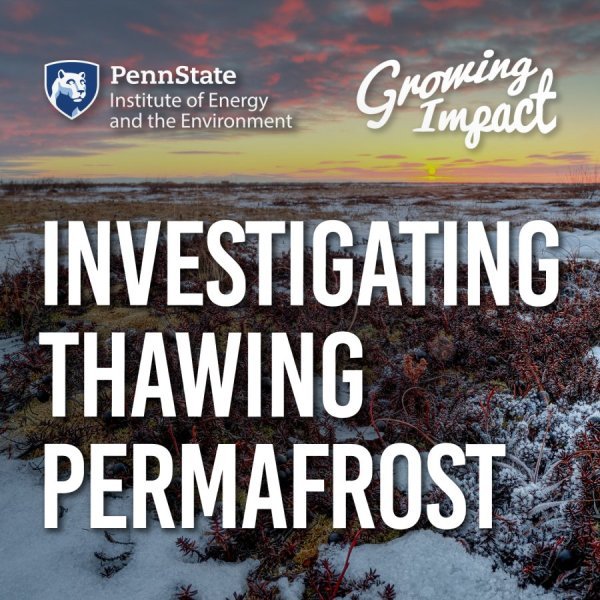University Libraries announces spring 2024 workshops on data skills topics
| psu.edu
Beginning Feb. 7, Penn State University Libraries will offer 17 workshops on topics such as statistical data analysis, data visualization, ScholarSphere, data privacy, and maps and GIS. Sessions are free and open to all Penn State faculty, staff and students. Advance registration is required for most of the sessions.
Start up your research: Apply now for March I-Corps Short Course
| psu.edu
Penn State’s NSF I-Corps Short Course is accepting applications for its virtual March cohort. The no-cost program helps researchers test a startup idea through customer interviews and educational programming on the lean startup methodology.
Toraman receives recognition from the American Institute of Chemical Engineers
| psu.edu
Hilal Ezgi Toraman, assistant professor of energy engineering and chemical engineering at Penn State, was selected as a “Pioneer of Catalysis and Reaction Engineering (CRE)” by the CRE division of the American Institute of Chemical Engineers.
Growing Impact: Community-powered solar farming
| Featuring Stephanie Buechler, Kaitlyn Spangler, Lauren McPhillips
Solar energy's surge, driven by cost efficiency and climate change urgency, is prompting a rapid transition to a renewable energy source with substantial land requirements. To inform just and sustainable rural land use with solar, a research team is working in rural communities to determine the potential for harmonious coexistence between solar and agriculture.
Climate change could contribute to honey declines, study says
| stateimpact.npr.org
Penn State researchers looked at 50 years worth of data on honey production by state as a way of measuring how the landscape of available flowers has shifted over that time.
Applications sought for 2024 M.G. Whiting Indigenous Knowledge Research Awards
| psu.edu
Current Penn State graduate and undergraduate students are invited to submit proposals for the 2024 M.G. Whiting Indigenous Knowledge Research Awards. March 15 is the deadline to submit proposals for projects on which research will be conducted between May 2024 and March 2025.
Edge habitats along roads and power lines may be key to conserving rare plants
| psu.edu
Managing forest edge habitats to maintain a gradient of canopy cover and plant density could be key to conserving some threatened native plant species such as wild lupine, according to Penn State researchers, who said edge habitats along roadways and utility rights-of-way provide prime opportunities to promote rare native plant populations.
Trees struggle to ‘breathe’ as climate warms, researchers find
| psu.edu
Trees are struggling to sequester heat-trapping carbon dioxide in warmer, drier climates, meaning that they may no longer serve as a solution for offsetting humanity’s carbon footprint as the planet continues to warm, according to a new study led by Penn State researchers.
Penn State meteorology professor named president-elect of American Meteorology Society
| onwardstate.com
Stensrud will be inducted to the position on Sunday, January 28, when the society meets for its 104th annual meeting.
Pennsylvania's Forest Stewards volunteers
| youtube.com
Pennsylvania’s Forest Stewards volunteers freely assist private woodland owners and the public in understanding forest and wildlife management and care.
Benefits of floodplain communities focus of Stuckeman professor’s exhibition
| psu.edu
Leann Andrews, assistant professor of landscape architecture in the Stuckeman School, and an international and multidisciplinary team of researchers set out to learn whether relocating residents of amphibious communities in Iquitos, Peru, has led to improved health and quality of life, and to determine how the animals and ecosystem of the region were impacted. The work is now part of a traveling exhibition designed to invite attendees to learn about the benefits of integrating sociological and ecological considerations in community planning.
Prenatal air pollution exposure linked to severe newborn respiratory distress
| psu.edu
Prenatal exposure to air pollution increases the risk of severe respiratory distress in newborn babies, according to new research conducted at the Penn State College of Medicine in collaboration with the Maternal-Infant Research on Environmental Chemicals Study led by Health Canada. The risk increases with exposure specifically to fine particulate matter and nitrogen dioxide, which occur in wildfire and cigarette smoke and vehicle emissions, among other sources.

